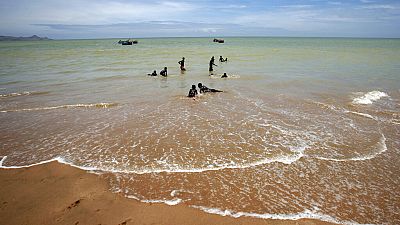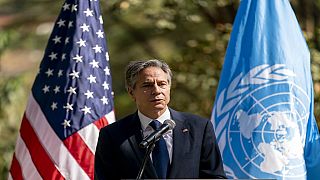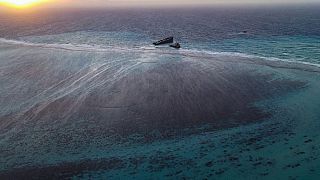Ocean
Gabon is in a world-leading position when it comes to protecting oceans, say experts.
The country on Africa’s west coast provides a blueprint that could be used in many other nations, according to a new paper compiled by Gabonese policymakers and researchers from the University of Exeter, UK.
Gabon's network of Marine Protected Areas (MPAs) is very unique. Since announcing its new MPA network in 2014, the country has created 20 protected areas - increasing protection of Gabonese waters from less than 1 per cent all the way to 26 per cent.
MPAs are protected areas of seas, oceans, estuaries or Great Lakes. They restrict human activity for conservation purposes, typically to preserve natural or cultural resources.
Global MPA coverage still doesn’t reach the 10 per cent target set in 2010, partly due to limited progress in many low-income and middle-income countries.
It was originally agreed by Parties to the Convention on Biological Diversity twelve years ago and was also adopted by member states of the United Nations as part of Sustainable Development Goal 14.
So what is Gabon doing differently?
Just a few countries - including Gabon - have met or exceeded international commitments on land and sea.
"Collective action has accelerated progress, and the country has now committed to the 30x30 pledge to protect 30 per cent of its oceans by 2030,” explains Dr Emma Stokes, Wildlife Conservation Society Regional Director for Central Africa & Gulf of Guinea.
"This political will and long-term engagement was vital --creating a 'tipping point' towards effective change.”
Gabon’s MPAs make up an interconnected network tailored to protect important habitats, as well as globally important populations of sea turtles and marine mammals. Protected zones extend from north to south, and from coastal waters to 200 nautical miles offshore.
The new paper argues that lessons from Gabon can be used to inform Post-2020 global biodiversity commitments and implementation.
It suggests a four-step approach for countries and donors:
- Governments must build and maintain their research and implementation capacity, ensuring scientific evidence underpins policy decisions.
- Countries should make public pledges on marine conservation targets, signalling their commitment to the international community and potential donors.
- The conservation community should respond by helping to create or strengthen the country's environmental agencies either directly or, if financial safeguards are weak, via international organisations.
- Each implementation agency should lead on developing national marine conservation frameworks, working with stakeholders and donors to produce plans that are ambitious but politically feasible.
“Gabon has made significant steps to ensure the long-term persistence of its marine biodiversity and fisheries resources, and should be celebrated as a global exemplar,” says Professor Brendan Godley from the University of Exeter.














01:16
Africa mourns Pope Francis, a voice for peace and justice
01:14
ECOWAS Meets in Ghana to Tackle Member Withdrawals
Go to video
Oligui Nguema: A breakthrough or continuity for Gabon? [Business Africa]
Go to video
EU foreign ministers discuss Ukraine, Syria and EU-African relations in Luxembourg.
00:57
Gabon: Oligui Nguema clinches a landslide win
Go to video
Gabon awaits presidential election outcome after peaceful vote